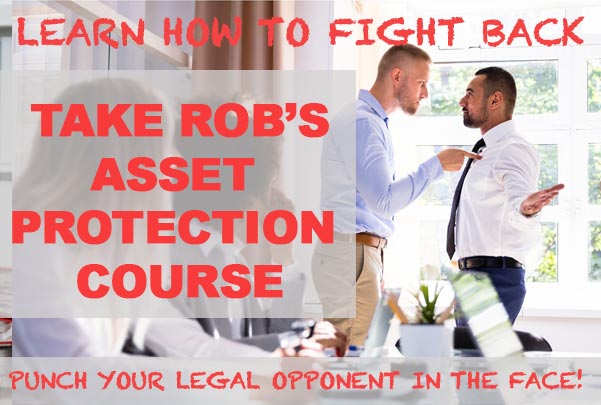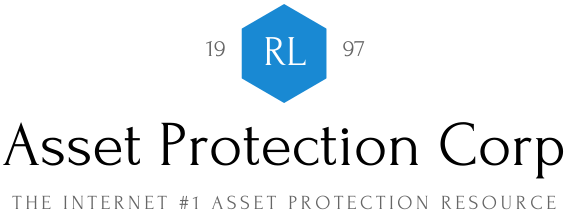IRS targets five illegal trusts
The Internal Revenue Service (IRS) has started cracking down on five types of trusts that they have judged to be illegal.
The IRS says that, of the three million active trusts in the U.S. today, nearly 6%, are considered “highly suspicious.”
And, according to the IRS’s director of Operation for Criminal Investigations, even if you are just a buyer of one of these trusts, you can face fines and jail.
Keep in mind, however, that not all trusts are being targeted by the IRS, and the government has said that the majority of trust holders have nothing to fear. Millions of individuals and businesses are using trusts to set aside funds for certain individuals, corporations or organizations and are not the focus of this campaign.
The trust arrangements that concern the IRS ignore the true ownership of assets or the substance of transactions. According to the IRS, promoters of these illegal trusts have made the claim that they allow the owners to retain full benefit of business or personal assets while reducing or eliminating taxes. The arrangements usually involve more than one trust. For example, a person may put business assets in an unincorporated business trust, transfer its business equipment to an equipment trust, place his home in a family residence trust, and set up a foreign trust to hold the other trust units and to receive trust income. In short, it’s a “family of trusts” and the IRS says they are created solely to evade taxes.
The IRS has issued warnings for you to be wary of arrangements claiming to make personal living expenses deductible, to create charitable deductions for payments benefitting you or your family or that may otherwise result in you having to pay no tax while not changing your control over your assets.
The IRS has said that promoters of these arrangements are advertising “investment seminars” or “tax seminars” in local media, such as radio personal-finance shows and on the Internet. The IRS says the trusts may have names that refer to constitutional issues, fairness, equity or patriotic themes, but more often have names similar to common business organizations and legitimate trusts.
The Criminal Division of the IRS has identified the five trusts it is targeting:
Business Trust
The owner of a business transfer the business to a trust (sometimes described as an unincorporated business trust) in exchange for units or certificates of beneficial interest, sometimes described as units of beneficial interest or UBIs (trust units). The business trust will make payments to the trust unit holders or to other trusts the owner has created(usually characterized as deductible business expenses or deductible distributions) that are purporting to reduce taxable income of the business trust to such an extent the where little or no tax is due from the business trust.
Equipment or Service Trust
The equipment trust is formed to hold equipment that is rented or leased to the business trust at inflated rates. The service trust is formed to provide services to the business trust, again often for inflated fees. Under these arrangements, the business trust claims to reduce its income by making allegedly deductible payments to the equipment or service trust. The equipment or service trust also attempts to reduce or eliminate its income by distributions to other trusts.
Family Residence Trust
The owner of the family residence transfers the residence to a trust. The trust claims the exchange resulted in a stepped-up basis for the property, while the owner reports no gain. The trust claims to be in the rental business and alleges to rent the residence back to the owner. In most cases, however, little or no rent is paid.
Charitable Trust
The wner transfers assets to a purported charitable trust and claims that either the payments to the trust are deductible or payments made by the trust are deductible charitable contributions. Payments are claimed to be made to charitable organizations, but, in fact, the payments are for the personal, educational, living or recreational expenses of the owner or his family. For example, the trust may pay for the college tuition of a child of the owner.
Final Trust
In some multi-trust arrangements, the U.S. owner of one or more fraudulent trusts establishes an additional trust known as the final trust that acts as the trust for the others and receives all income from the other trusts. A final trust often is formed in an offshore that imposes little or no taxes on the trust. In some arrangements, more than one foreign trust is used, with the cash flowing from one trust to another until the money ultimately is distributed or made available to the U.S. owner, purportedly tax-free. This has been judged by the IRS as being nothing more than a money-laundering scheme.

Trusts and scam
-
Abusive Trusts: Someone will have to pay the taxes!
-
Pure Trust scams
-
IRS Targets Five illegal Trusts
- Constitutional Trusts and Pure Trust scams
- Legal principles that are applicable to trusts
- IRS cracking down on trust scammers
- Abusive Trust arrangements
- Examples of Abusive Trust arrangements – Part One – The Business Trust
- Examples of Abusive Trust arrangements – Part Two – The Equipment or Service Trust
- Examples of Abusive Trust arrangements – Part Three – The Family Residence Trust
- Examples of Abusive Trust arrangements – Part Four – The Charitable Trust
- Examples of Abusive Trust arrangements – Part Five – The Final Trust
Newsletter signup
[forminator_form id=”1485″]

FIGHTING BACK!
